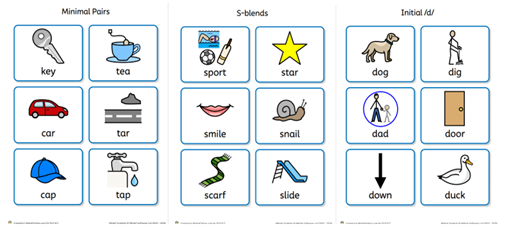Guidance from the Heart
“They grow up so fast.” It’s a phrase we hear often - but when you’re parenting a teenager, those words can feel both painfully true and incredibly complex. As a Family Support Worker as well as a mum of teens, I have the privilege of experiencing first hand as well as walking alongside families during one of the most challenging and transformative stages of parenting: the teenage years.
This chapter of life brings growth, identity formation, independence - and yes, often conflict. But with just the right balance of understanding, communication, and support, it can also be a time of deep connection and mutual respect between parents and their teens.
Understanding the Teenage Brain
First, we can help teenagers by normalising what they are going through. Teenagers are navigating a whirlwind of change - physically, emotionally, socially, and neurologically. The brain isn’t fully developed until the mid-20s, particularly the prefrontal cortex, which is responsible for decision-making, judging risk, impulse control, and foreseeing consequences. This biological fact doesn’t excuse challenging behaviour, but it does help us reframe it.
As parents and professionals, we must lead with empathy.
When we understand that teenagers are often acting from emotion rather than logic, we can respond with patience instead of punishment, and with curiosity instead of criticism.
Communication: The Bridge to Connection
If I could offer one piece of advice to every parent of a teenager, it would be this: Don’t stop talking, and don’t stop listening.
Even when your teenager seems disinterested or withdrawn, they still need you. They might not show it in the same way they did as children, but your presence, your consistency, and your calmness are more important than ever.
Here are a few key communication strategies I often share with families:
- Choose the right time to talk. Avoid deep conversations during heated moments. Wait for calm.
- Listen without interrupting. Reflect what you hear before offering advice.
- Validate their feelings. You don’t have to agree with their perspective to acknowledge that it’s real for them.
- Stay curious, not critical. Ask open-ended questions like, “What was that like for you?” or “How did that make you feel?”
Boundaries are a Form of Love
Teenagers crave independence, but they also need structure. Boundaries provide a sense of safety and clarity in a world that often feels overwhelming.
The most successful families I work with are those who maintain clear, consistent boundaries while also involving their teen in the process. Collaborative rule-setting builds trust and encourages responsibility. Be prepared for pushback - this is normal. What matters most is that your boundaries are fair, explained with love, and followed through with consistency.
Looking After Yourself as a Parent
I often remind the families I work with: You cannot pour from an empty cup.
Parenting teenagers can be emotionally draining. You may feel guilt, confusion, frustration, or grief for the child that once held your hand so willingly. All of these feelings are valid.
Make space for yourself. Whether it’s connecting with other parents, seeking professional guidance, or simply taking a walk in nature as your wellbeing matters too. A regulated parent is the foundation for a regulated child.
When to Seek Extra Support
If you’re struggling, you are not alone - and asking for help is a sign of strength, not failure. Whether it’s through your child’s school, local youth services, or professionals within a team like ours, here at MAST, support is available.
Look out for signs that may require further intervention, such as:
- Ongoing low mood, anxiety, or withdrawal
- Self-harm or talk of hopelessness
- Persistent defiance, aggression, or risky behaviours
- Changes in eating, sleeping, or academic performance
Sometimes, a neutral third party can help open dialogue and begin the healing process.
A Final Word: Hope and Resilience
The teenage years are not just about surviving conflict - they’re about nurturing growth. I’ve witnessed time and again how families come through the other side stronger, with deeper understanding and newfound respect for one another.
Teenagers are still learning who they are. And whether they admit it or not, they still look to you - for love, safety, and belief in their potential.
As a Family Support Worker, I believe wholeheartedly in the resilience of families. With patience, compassion, and the right support, you and your teenager can navigate this journey not just with strength - but with connection and love.
Disclaimer: The views and opinions expressed in blog posts are solely those of the individual author and do not necessarily represent those of Plymouth Learning Partnership CIC. The content is provided for general information and educational purposes only and should not be relied upon as professional or legal advice. Plymouth Learning Partnership CIC accepts no responsibility or liability for any errors, omissions, or actions taken in reliance on this content. The individual author is responsible for ensuring that any third-party material used (including text, images, and media) does not infringe copyright. Plymouth Learning Partnership CIC does not accept liability for any unauthorised use of copyrighted material by the individual author.








